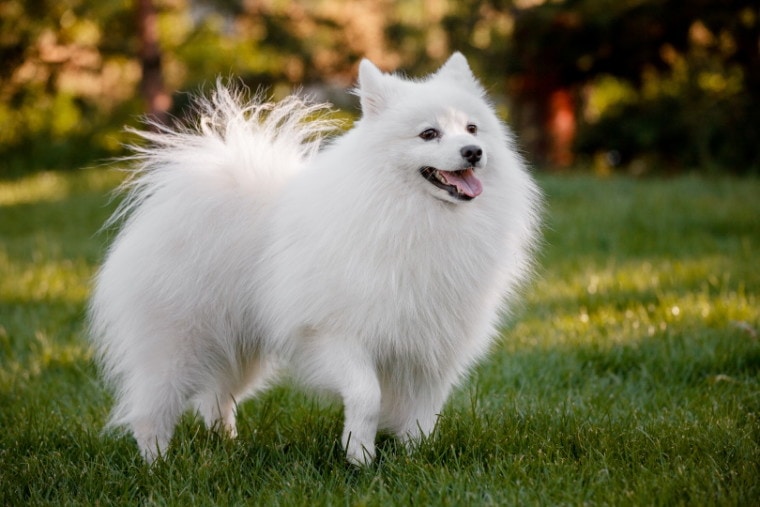
Click Below to Skip Ahead
While the Japanese Spitz might not be the most well-known dog breed out there, perhaps they should be. They’re an extremely intelligent and loyal breed, and even better, they’re perfect for apartment living!
They’re also incredibly social, have a longer lifespan, and are relatively healthy. Whether you’re a first-time dog owner looking to adopt an easier breed or a long-time pet lover who needs another furry companion, the Japanese Spitz makes a great choice.
Breed Overview
Height
12 to 16 inches
Weight
11 to 20 pounds
Lifespan
10 to 16 years
Colors
White
Suitable for
People living in apartments, multi-pet homes, and homes with children
Temperament
Energetic, playful, intelligent, affectionate, and loyal
But what exactly is a Japanese Spitz, how much does it cost to adopt one, and what do you need to do to care for them properly? We break down everything that you need to know about this adorable and fluffy dog here.
Japanese Spitz Characteristics
Japanese Spitz Puppies

One of the reasons that Japanese Spitzes might not be the most popular breed out there is their price. If you’re looking for a purebred Japanese Spitz, you’ll need to spend a lot, and even then, you likely won’t have breeding rights. Once you factor in that there aren’t a ton of breeders around, you might need to travel to go pick up your pup.
If you are able to find a Japanese Spitz, we think that these adorable and easy-to-care-for pups are worth the wait. They’re very loyal and energetic and will create strong bonds with their families and especially children. They’re great around other pets so you won’t have to worry if you have other furry friends in your home.
Temperament & Intelligence of the Japanese Spitz
The truth is the Japanese Spitz is an extremely intelligent and friendly dog. While they have a ton of energy, they’re also extremely loyal and are just a ton of fun to be around! They’re playful and affectionate and are the perfect fit if you’re looking for a companion.
Are These Dogs Good for Families? 👪
The Japanese Spitz is a great family dog because they have a loyal and easygoing temperament. They do well with children of all ages, but you should be careful with smaller kids. While the Japanese Spitz does well with them, smaller children can stumble and fall and injure your pet.
Moreover, you need to be careful because if this happens, your Japanese Spitz might lash out because they’re trying to protect themselves.
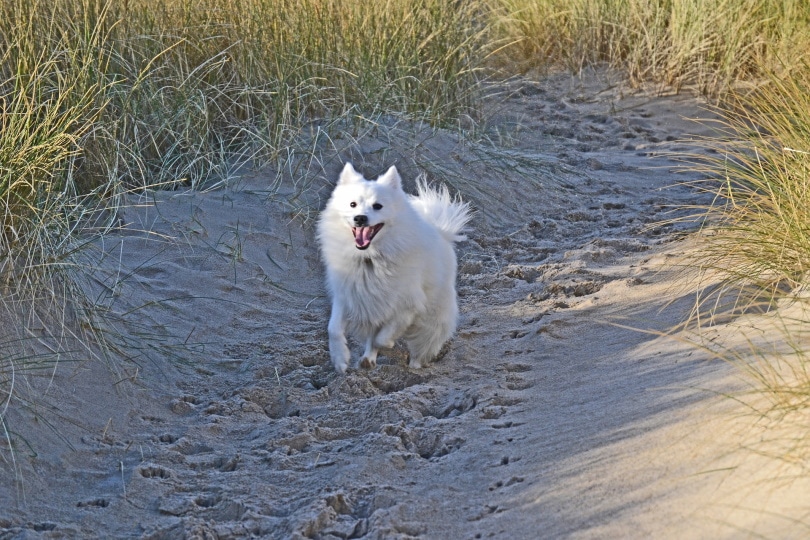
Does This Breed Get Along With Other Pets?
While you need to take the time to socialize them, the Japanese Spitz generally does well with other pets. They typically start a bit shy, but over time, they relax and get playful toward other dogs and pets.
It’s always best to try to introduce them to other pets before bringing them into the home.
Things to Know When Owning a Japanese Spitz
Just because the Japanese Spitz is an easier breed to care for doesn’t mean that there aren’t a few things that you need to look out for. Here, we highlighted a few of the basic care requirements that you’ll need to keep up with to care for your Japanese Spitz.
Food & Diet Requirements 🦴
Since their size can vary so much, you need to be careful with how much you feed them. Always stick with a high-quality kibble because this will give them all the nutrients that they need without the filler.
A small 11-pound Japanese Spitz should only eat about ½ cup of food a day, and even that might be a little too much for them. Meanwhile, a 20-pound Japanese Spitz needs about 1 ½ cups of food each day.
Always stick to the recommended amounts on the dog food that you’re buying. Finally, feel free to give your dog treats like cheese, bananas, or apples. You can also purchase store treats but pick a high-quality brand.
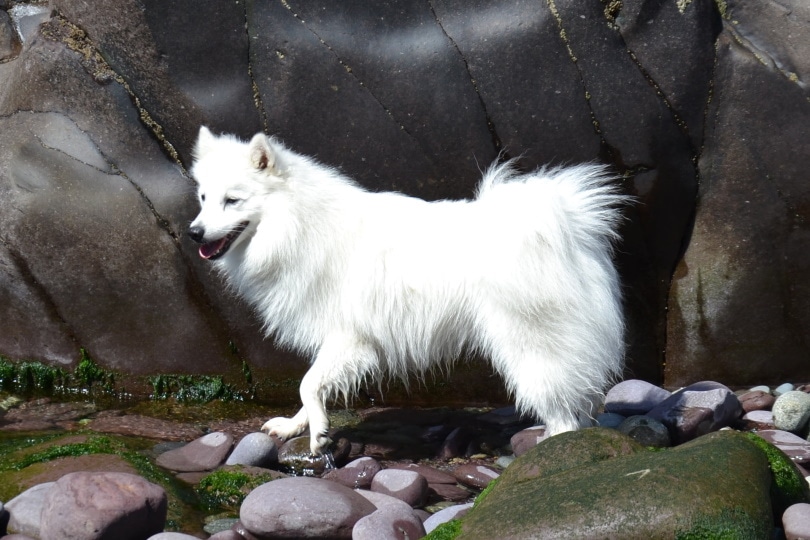
Exercise 🐕
While the Japanese Spitz might have energy to burn, their daily exercise requirements are quite modest. They need anywhere from 30 minutes to 1 hour of activity each day. You can meet these requirements in small spaces like apartments, but you should ensure that they always have access to toys.
Furthermore, you should strive to walk them every day. Aim for anywhere between ½ and 1 mile, and keep an eye on your pup to ensure that they’re keeping up and enjoying themselves.
Training 🎾
While you need to take plenty of time to train your Japanese Spitz, they are a highly intelligent breed that you can train for just about anything. Keep training sessions short and use positive reinforcement throughout. Give them plenty of treats, and try to keep from getting frustrated or negative.
If you feel your frustration rising, it’s best to take a break, as outbursts can set back your training time. Also, keep in mind that the Japanese Spitz is known to bark quite a bit, but with training, you can get this under control.
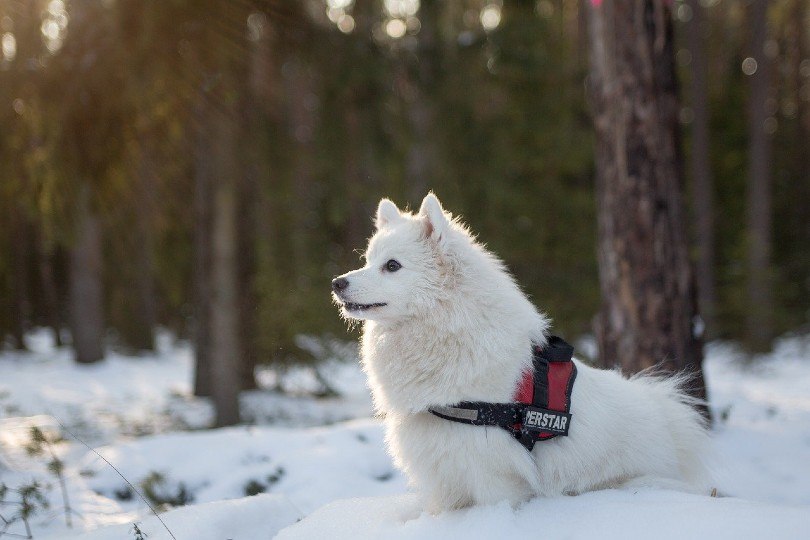
Grooming ✂️
While a Japanese Spitz has a pure white coat, it’s not nearly as labor-intensive as many other breeds with a similar coat. They try to stay clean, and since they’re an apartment dog, it’s relatively easy to do.
However, they do have longer hair, and you need to brush it out at least twice a week to keep it from matting up. You also should bathe them once a month with a high-quality shampoo.
Finally, to maintain their good oral hygiene, you need to brush their teeth several times a week. While this might seem a little excessive, keeping up with their oral hygiene improves their overall health and can save you thousands in future dental bills.
Health and Conditions 🏥
One of the best perks of owning a Japanese Spitz is that they rarely suffer from health ailments. But it’s not impossible. The best thing that you can do for your Japanese Spitz is to feed them a high-quality diet and meet all their daily exercise requirements.
From there, keep an eye out for any of the possible conditions, and take them to a vet if you suspect that anything is wrong.
Male vs. Female
While there aren’t many differences between a male and female Japanese Spitz, there are two that you should be aware of.
First, males tend to be a bit larger. While sex doesn’t guarantee a specific size, it’s still a crucial factor. Second, males often need a little more attention than their female counterparts.
Both male and female Japanese Spitzes crave human interaction and attention, but males even more. Of course, much of this has to do with your pet’s personality, so don’t be surprised if you get a needy female or a more aloof male!
3 Little-Known Facts About the Japanese Spitz
1. They Crave Human Interaction
If you’re getting a Japanese Spitz, expect to spend time with them. Whether it’s a hectic day or a lazy afternoon on the couch, your pup wants to be with you. While this is an adorable trait if you want a companion, if you live a hectic life away from home, a Japanese Spitz might not be the right choice.
That’s because Japanese Spitzes don’t just like being with you, they must be with you. Too much time alone leads to separation anxiety and other harmful behaviors.
2. They Are High-Energy Dogs
Just because the Japanese Spitz is a small dog doesn’t mean they don’t have tons of energy. They love to move and stay active, but since they are small, they don’t need a ton of space to do it.
Still, you should take your Japanese Spitz for daily walks to get them out and keep them happy. These walks don’t need to be that long — a half-mile a day should do the trick.
Just don’t expect your Japanese Spitz to lay around all day when you’re home. Give them plenty of toys to play with so they don’t resort to destructive boredom behavior.
3. The Japanese Spitz Is an Extremely Rare Breed
The much higher price tag on the Japanese Spitz has nothing to do with how hard they are to breed; it’s simply that there aren’t that many of them out there to breed in the first place.
They’re not easy to find, and there’s a good chance that you’ll need to travel to pick one up when you do find a breeder.
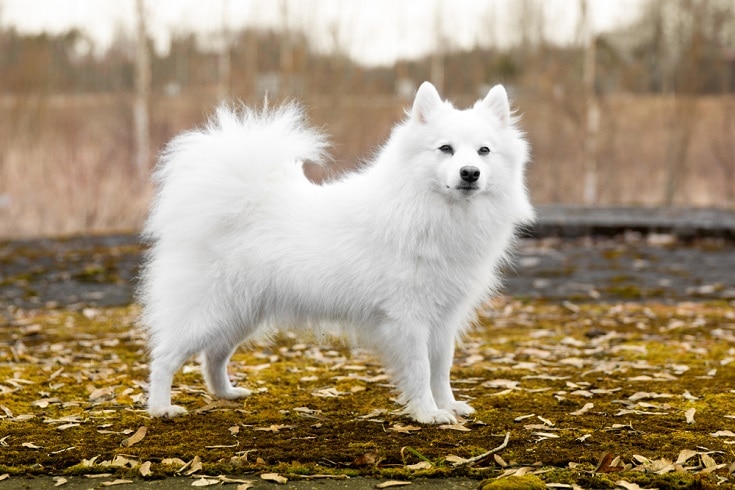
Final Thoughts
While the Japanese Spitz is an extremely rare breed, once you have one in your home, it’s not hard to see what all the fuss is about. They’re friendly, affectionate, and playful — all while remaining relatively easy to care for!
Just ensure that you have the time to care for them because they are a bit needy and won’t be happy if they’re left alone for large portions of the day. But if you have the time, they make a great addition to almost any home, no matter how big or small!
You might also like:
- 19 Types of Spitz Dog Breeds: Pictures, Facts, & History
- Pets in Japanese Culture: 10 Surprising Facts
Featured Image Credit: lexander Seluyanov, Shutterstock







